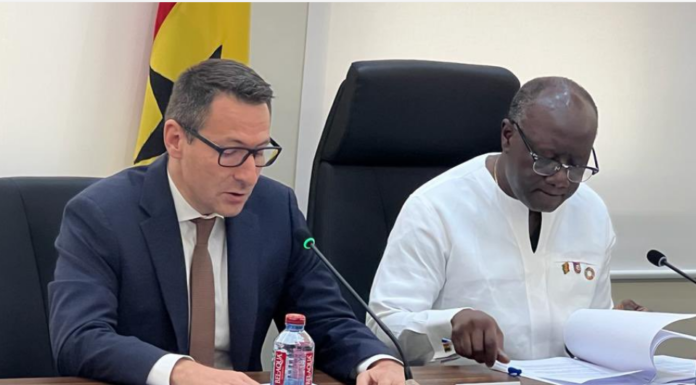
The International Monetary Fund (IMF) has reached staff level agreement on its first review of Ghana’s programme.
This has brought about some optimism in relation to the disbursement of the second $600million tranch under the programme by November.
Ghana in May reached a Board level agreement with the IMF for $2billion bail out with $600m disbursed at the start of the programme. Further disbursements were however tied to the country’s ability to meet certain targets.
In a press statement after the meeting in Accra on Friday, November 6, 2023, the leader of the IMF delegation Mr. Stéphane Roudet, said “I’m very pleased to announce that the IMF staff and Ghanaian authorities have reached a staff-level agreement on the first review of Ghana’s economic program under the Extended Credit Facility
arrangement. This staff-level agreement is subject to IMF Management approval and Executive Board
consideration once the necessary financing assurances have been received. An agreement with official
creditors on a debt treatment in line with program parameters would provide the needed financing
assurances. Upon completion of the Executive Board review, Ghana would have access to SDR 451.4
million (about US$ 600 million), bringing the total IMF financial support disbursed under the arrangement,
since May 2023, to SDR 902.8 million (about US$1,200 million).
“Faced with an acute economic and financial crisis, the authorities have adjusted macroeconomic
policies, successfully completed their domestic debt restructuring operation, and launched wide-ranging
reforms. These actions are already generating positive results, as growth in 2023 has proven more
resilient than initially envisaged, inflation has declined, the fiscal and external positions have improved,
and the exchange rate has stabilized.”
He added: “Consistent with the authorities’ commitments under the Fund-supported program, fiscal performance has been strong, and Ghana is on track to lower the fiscal primary deficit on a commitment basis by about 4 percentage points of GDP in 2023. Spending has remained within program limits. To help mitigate the impact of the crisis on the most vulnerable population, the authorities have significantly expanded social protection programs. On the revenue side, Ghana has met its non-oil revenue mobilization target. Ambitious structural fiscal reforms are bolstering domestic revenues, improving spending efficiency,
strengthening public financial and debt management, and enhancing transparency.
“In light of Ghana’s compelling performance under the Fund-supported program, the critical next step is to
secure an agreement with official creditors on the terms of a debt treatment consistent with the IMF
Executive Board-approved program parameters and debt targets. We urge official creditors to move
forward and agree on an appropriate debt treatment in line with the financing assurances they provided in
May 2023.”
IMF staff held meetings with Vice President Bawumia, Finance Minister Ofori-Atta, and Bank of Ghana
Governor Addison, and their teams, as well as representatives from various government agencies.
The IMF team also engaged with other stakeholders. Staff would like to express their gratitude to the
Ghanaian authorities and other counterparts for their continued open and constructive engagement.
Source: Ghana/Starrfm.com.gh/103.5FM




